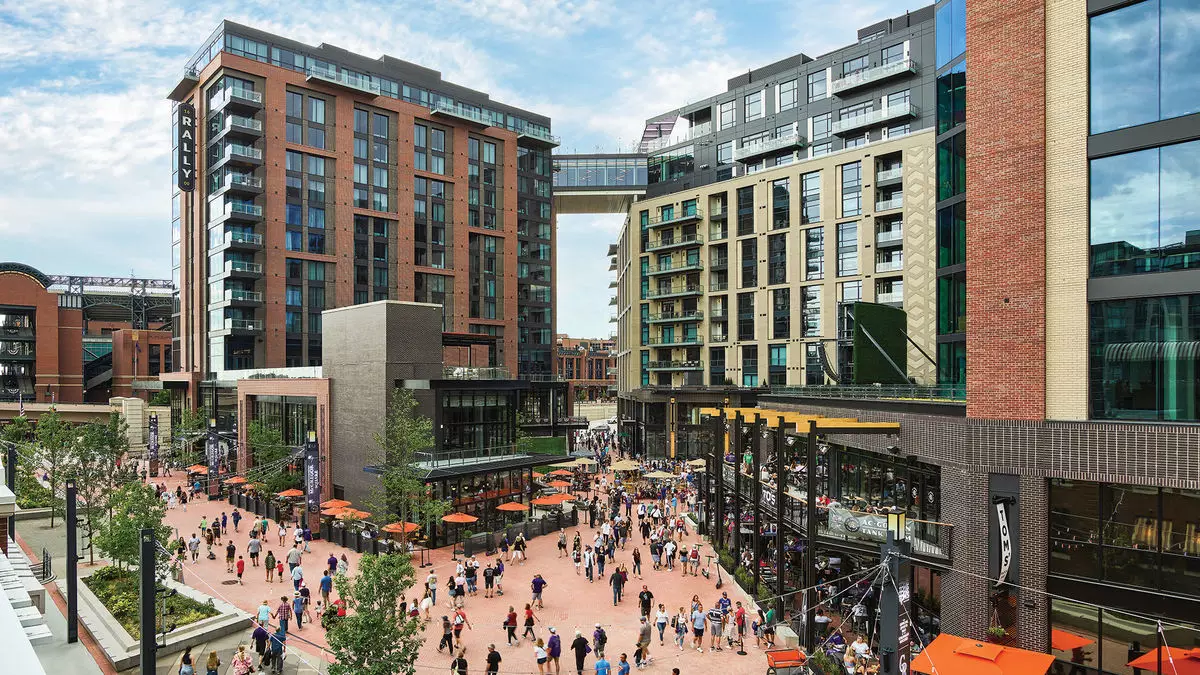The concept of “sportspitality” is gaining momentum in the realm of travel and tourism, intertwining the passion for sports with the art of hospitality. This innovative blend is transforming how fans engage with their favorite teams while traveling, as seen in recent developments around Major League Baseball and similar organizations. The Rally Hotel at McGregor Square in Denver, operating as a hub for fans of both the Colorado Rockies and the New York Yankees, symbolizes this shift and highlights the enormous potential of sports tourism that transcends traditional hotel experiences.
Walter Isenberg, the visionary behind The Rally Hotel and CEO of Sage Hospitality Group, recognizes the broader implications of this trend: “Its about more than just baseball.” By creating a vibrant atmosphere around the hotel that extends beyond game day, these venues attract a diverse array of visitors—locals and tourists alike. Through interactive experiences and events timed with various seasons, hotels like The Rally proactively maintain their relevance within the hospitality industry year-round.
Strategic Development and Exclusivity
The strategic location of hotels adjacent to sports venues offers numerous advantages, one of which is the exclusive access to teams. This close connection allows hotels to create unique packages for fans, enhancing their overall experience. For instance, The Rally Hotel, with its meticulously curated amenities— from baseball-themed decor to specialized ticket packages—captures the hearts of sports enthusiasts, reinforcing loyalty and increasing its allure. Hotels can elevate their stature by emphasizing exclusive access and special events that provide intimate glimpses behind the scenes—essentially turning a stay into a memorable experience that keeps fans coming back for more.
Interestingly, the development trend is not confined to Major League Baseball. Other sports franchises are recognizing the financial incentives of these mixed-use real estate opportunities. The Battery in Atlanta, for example, has blossomed into a thriving hub of retail, dining, and entertainment that enhances the fan experience. This model effectively capitalizes on foot traffic during events, ensuring that visitors remain engaged and entertained within the vicinity long after the final whistle.
Shaping the Future: Beyond Just Baseball
Real estate development linked with sports is a powerful technological and cultural leap forward. Teams that invest in local hotel growth not only solidify their brand but also gain economic traction, enhancing revenues through elevated attendance. As revealed by analysts and industry insiders, the surge in global sports tourism is a commercial reality. It is projected to grow exponentially, presenting an opportunity for teams and their associated businesses to capture a large share of an economy that is only becoming more lucrative.
The functional adaptability of hotels—for example, The Rally hosting events like movie nights and yoga sessions—attests to a clear understanding of the need to be more than a transient space. This constant reinvention of function fosters community integration and sustains visitor interest even during off-peak seasons, a necessity in sports-centric locations where the action may not be continuous.
Strategic Partnerships: Collaboration for Growth
High-profile partnerships are transforming the landscape of the hospitality industry. Renowned hotel brands are joining forces with sports franchises to unlock mutual benefits through targeted branding initiatives and consumer engagement strategies. By associating with established teams, hotels like those under Marriott Bonvoy or Hilton tap into existing fan bases. This alignment is not merely a collaboration; it is an entry point into the hearts of sports fans.
Initiatives such as the newly launched Sports Illustrated Resorts target not only professional sports markets but also college towns, where loyalties run deep. By creating immersive, themed resorts that resonate with local identities, these ventures aim to foster a sense of belonging while driving significant revenue through sports tourism. With fans travelling for collegiate events, the economic implications for local communities and hospitality operators are profound.
The Local Impact and Community Integration
Beyond the immediate financial benefits, the synergy of sports and hospitality fosters a greater community connection, empowering locals while attracting tourists. Properties like The Rally Hotel anchor themselves to their neighborhoods, creating pathways for cultural exchange. As these venues extend their influence, they can contribute to local economies through employment and increased patronage for nearby establishments.
Moreover, providing a spectrum of events—whether hosting art installations, symphonic performances, or communal exercises—encourages a diversified approach to tourism that benefits everyone. Such multifaceted strategies create robust interactions that build lasting relationships, not just between fans and their teams, but within the larger communities that thrive around these sports hubs.
The blossoming concept of sportspitality is reshaping how fans experience their passion while traveling. Outfits that prioritize location, community engagement, and exclusive offerings are poised to succeed in the ever-expanding world of sports tourism. The marriage of sports and hospitality isn’t merely a trend; it’s a defining evolution shaping the future of both industries.


Leave a Reply